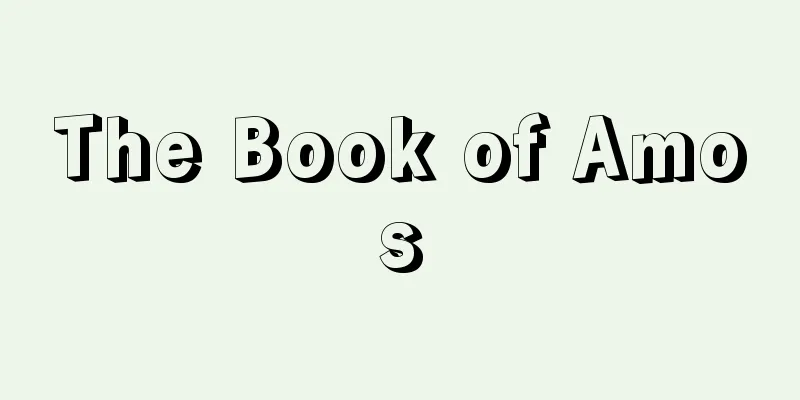Born March 15, 1920 in Mart, Texas
[Died] October 20, 2012. A medical scientist from Seattle, Washington. Full name Edward Donnall Thomas. He received his bachelor's degree in 1941 and master's degree in 1943 from the University of Texas. He received his doctorate from Harvard Medical School in 1946. He worked at Peter Bent Brigham Hospital (later Brigham and Women's Hospital) from 1946 to 1952, and was a professor at Columbia University School of Medicine from 1955 to 1963. In 1963, he moved to the University of Washington in Seattle. He became a professor emeritus at the same university in 1990. In 1975, he moved to the Fred Hutchinson Cancer Research Center at the University of Washington, where he worked hard to establish the world's first bone marrow transplant center to study leukemia, aplastic anemia, and other blood diseases, and led the research team. He began researching bone marrow transplants using dogs in the 1950s, and attempted to apply the method to human leukemia patients. In 1956, he succeeded in overcoming the rejection reaction in a bone marrow transplant between identical twin brothers, and later discovered the effectiveness of the immunosuppressant methotrexate, and in 1968 succeeded in a bone marrow transplant from a relative other than an identical twin. Thanks in part to the results of Thomas' research, the survival rate of patients with acute lymphoblastic leukemia (→ lymphoblastic leukemia) had increased by 1990. He also developed a method to reduce graft-versus-host reaction (GVHD), paving the way for the treatment of not only leukemia but also severe hereditary anemia and various cancers. For these achievements, he was awarded the Nobel Prize in Physiology or Medicine in 1990 along with his collaborator Joseph E. Murray. Thomas
Thomas, Dylan Born: October 27, 1914, Swansea, England
[Died] 11/9/1953. New York, USA. British poet. Full name: Dylan Marlais Thomas. Born in Wales. One of the most important poets of the first half of the 20th century. He started writing poetry at an early age, and published his first collection of poems, 18 Poems (1934), at the age of 20. Along with 25 Poems (1936), he wrote poems about death and sex with layered images, breathing fresh air into the poetry world that had been stagnating due to the political poetry of Wystan Hugh Auden and others in the 1930s. He lived in London from that time on, and wrote scripts for the BBC, but he was always plagued by poverty due to his lack of economic sense, and fell into alcoholism. In The Map of Love (1939) and Deaths and Entrances (1946), he changed his style completely, singing of almost religious emotions inspired by nature. Other works include In Country Sleep (1952). He finally settled in Wales in 1949, but during one of his several trips to America to read his own works, he became addicted to alcohol and died at the age of 39. His works include the radio drama Under Milk Wood (1954) and the autobiographical collection of short stories Portrait of the Artist as a Young Dog (1940). Thomas
Thomas, R.S. Born: March 29, 1913, Cardiff
[Died] September 25, 2000. Llanfairygonewy. Welsh clergyman and poet. Full name Ronald Stuart Thomas. His writings were about his hometown, its people, and its faith. His style was concise and unsentimental, but sometimes lyrical and witty. He studied classics at the University of North Wales and theology at St. Michael's College, and became a clergyman of the Church of Wales in 1936. He learned Welsh in his 30s, so he wrote poetry in English, and his Welsh works were limited to autobiographical essays. Most of his early poems, such as "Stones of the Field" (1946) and "Song at the Year's Turning: Poems 1942-1954" (1955), were about rural life, but in his later years he developed an interest in religion and philosophy. In 1996, he was nominated for the Nobel Prize in Literature by the Welsh Academy. Other works include "Poetry for Supper" (1958) and "Later Poems 1972-1982" (1983). In 1964, he was awarded the Queen's Gold Medal. (→ British Literature) Thomas
Thomas, William Isaac Born August 13, 1863, Virginia, Russell
[Died] December 5, 1947. Berkeley, California. American sociologist. After graduating from the University of Tennessee in 1884, he studied in Germany, and after returning to Japan, he obtained a degree in psychology from the University of Chicago in 1996. He was a professor of sociology at the University of Chicago from 1910 to 1918, and later lectured at other universities, training many sociologists and contributing to the establishment of sociology as an empirical science. In 1927, he became president of the American Sociological Association. His sociology was characterized by a psychological approach, and he is known for his "Four Wish Theory" and his joint research with FW Znaniecki on Polish immigrants. He also presented a case study method for analyzing personality transformation using personal documentary materials such as letters and diaries. His major works include The Polish Peasant in Europe and America (5 volumes, 1918-20, co-authored with Znaniecki), The Unadjusted Girl (23), and The Child in America (28, co-authored with DS Thomas). Thomas
Thomas, Sidney Gilchrist Born: April 16, 1850, London, England
Died: February 1, 1885. Paris, France. British metallurgist and inventor. In 1875, he discovered a method for removing phosphorus from iron ore using a Bessemer converter (→ Bessemer process). Today, this method is called the Gilchrist-Thomas process, the Thomas process, or the basic steelmaking process. He gave up on entering the University of London Medical School when his father died just before he could do so. After briefly working as a classical teacher, he studied applied chemistry and metallurgy at the Royal School of Mines while working as a police court clerk. In 1875, he discovered that by using a strongly basic substance (such as burnt limestone) on the inner wall of a Bessemer converter, the impurity phosphorus could be removed by combining with the basic substance and dissolving into the slag. After repeated experiments with the help of his cousin Percy Gilchrist, he succeeded in commercializing the method. He applied for a patent in 1877. After 1879 he left the police court to devote himself to research, but working for many years in a court with poor conditions led to poor health and an early death. Thomas
Thomas, Isiah Born January 19, 1749 in Boston
Died: April 4, 1831, Worcester, Massachusetts
A leading American printer and publisher from the late 18th century through the 19th century. In 1770, he partnered with D. Fowle to launch the Massachusetts Spy, a newspaper that consistently represented the official patriot position until the end of the Revolutionary War. After the war, he expanded his branches throughout the country and published 400 books and periodicals. He also published many publications for young children, including Mother Goose's Melody (1786). His book, The History of Printing in America (2 volumes, 1810), remains an authoritative overview of printing and publishing in colonial America. Thomas
Thomas, Norman (Mattoon) Born November 20, 1884 in Marion, Ohio
[Died] December 19, 1968. Huntington, New York. American politician and social reformer. Graduated from Union Theological Seminary in 1911. Active as a Presbyterian minister in New York. Opposed America's entry into World War I, he joined the Socialist Party in 1917. He helped edit the weekly magazine The Nation and became one of the leaders of the American Liberal League. From 1928, he ran for president six times as a Socialist Party candidate, during which he played an active role as a Socialist Party leader during emergencies such as the recession of the 1930s and World War II. After the war, he worked hard for international peace movements, such as ending the Vietnam War. His main work is The Test of Freedom (1954). Thomas
Thomas, James Henry Born: October 3, 1874. Newport, Monmouthshire
[Died] January 21, 1949. London. British politician. A railway employee at the age of 15, he became president of the United Railway Employees' Union in 1904 and worked hard to unite the railway workers' unions, becoming general secretary of the National Union of Railwaymen in 1917. He was a Labour member of the House of Commons from 1910 to 1936. He was chairman of the Trades Union Congress in 1920. He served as chairman of the International Trade Union Confederation from 1920 to 1924, and was Secretary of State for Colonial Affairs in 1924, Lord Keeper of the Great Seal and Minister for Employment in 1929, and Secretary of State for the Dominions in 1930. He left the Labour Party to remain in J. MacDonald's national united government. He was Secretary of State for Colonial Affairs again in 1935, but retired from politics in 1936. His main work is My Story (1937). Thomas
Thomas (Philip) Edward Born: March 3, 1878, London
Died: April 9, 1917. French-British poet. Although he was one of the Georgian poets, his delicate sensibility and precise writing, full of pathos towards life, make him an outstanding modern poet. He wrote the geographical work The Woodland Life (1897) and biographies of Swinburne, Peter, and Maeterlinck, but after turning 30, encouraged by Frost, he began writing poetry, and was killed in action in World War I, leaving behind Collected Poems (1920, 28, 49). He also wrote a collection of essays, Rest and Unrest (10). Thomas
Thomas, George Henry Born July 31, 1816 in Southampton, Virginia.
[Died] March 28, 1870. San Francisco American soldier. General of the Union Army during the American Civil War. After graduating from the United States Military Academy, he participated in the Mexican-American War. Although he was from Virginia, he remained on the Union side during the American Civil War, and fought bravely in the Battle of Chickamauga in 1863, becoming known as the "Rock of Chickamauga." He then led the Army of the Cumberland and distinguished himself in the capture of Chattanooga. During W. Sherman's "March into Georgia," he defeated the Confederate Army of General J. Hood, who was trying to obstruct the march, and received a resolution of thanks from the U.S. Congress. Thomas
Thomas One of the twelve apostles (disciples) of Christ. Also known as "Thomas Didymus (Greek for twin)". He refused to believe in Jesus' resurrection, but after he put his finger into the wound, he believed and confessed that Jesus was God (John 20:24-25). According to legend, he was a missionary in India and founded a church there. A Nestorian church that follows this legend still remains in southern India today. The Gospel of Thomas is also named after him in the New Testament Apocrypha. Thomas
Thomas, Augustus Born January 8, 1857 in St. Louis
[Died] August 16, 1934. Born near Nyack, New York. American playwright and actor. Wrote about 60 popular plays. His representative works include Alabama (1891) and The Witching Hour (1907), which deals with hypnotism. Source: Encyclopaedia Britannica Concise Encyclopedia About Encyclopaedia Britannica Concise Encyclopedia Information |










